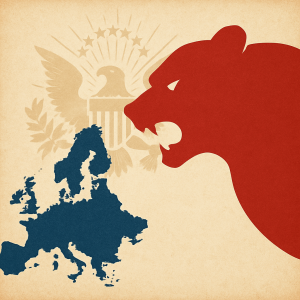On May 14, Recep Erdogan may well lose the Turkish presidential election. This is not a certainty, but his eviction is just as likely as Vladimir Putin’s if the Ukrainian forces score a few real points in the war in the near future. Maybe we are on the verge of great changes, then, but are we sufficiently prepared for them and are we even measuring their importance?
The answer is “no”, two times “no”, because Turkey without Erdogan, or Russia without Putin would be such a blank slate that these hypotheses alone make one dizzy. On the face of it, a victory of the Turkish opposition coalition led by Kemal Kiliçdaroglu would be a nightmare for the Kremlin and a blessing for the Ukrainians, the European Union and the United States. As a member of the Atlantic Alliance, Turkey would draw closer to its Western allies and distance itself from Moscow. This is largely assured, but once the Turkish political prisoners have been released and the rule of law has been re-established in Ankara, what should the Union do when faced with the request to resume accession negotiations that a democratized Turkey would inevitably make?
The Europeans would be immensely embarrassed because they already do not know how to proceed with Ukraine, the Western Balkans, Georgia and Moldova, and the right and extreme right would make a big deal of the only possibility that the Union might one day end up opening its doors to a Muslim country. Erdogan’s Turkey is a real headache for Western chancelleries, but a democratic Turkey would be a much bigger headache for them, as it would be entitled to expect a new customs agreement with the 27 and the opening of discussions on the Turkish part of Cyprus and a more equitable sharing of territorial waters with Greece.
If the West, and the Europeans in particular, do not want to see a good turn into an evil, they should in other words be prepared to make proposals to a successor to Erdogan that he could not refuse, and the same goes for Russia.
No one knows today who might succeed Vladimir Putin and under what circumstances, but if he were to be replaced following a deepening of his military failure in Ukraine, the possibility of a just and lasting peace treaty would open up. Ukraine, the Union and its 27 member states would then have to be all the more ready to propose the terms, as the United States would be strongly tempted to reach an agreement directly with Moscow.
From the status of Crimea and Sevastopol in particular to the questions of the place of the Russian Orthodox Church in Kiev and the Russian language in the Donbass, nothing would be easy in these negotiations, but the point on which everything would depend would be that of security guarantees. On the one hand, Ukraine would have every right and every reason to choose to join the Atlantic Alliance. On the other hand, a Russia whose armies had been defeated would always assert its right to retain solid defence capabilities because it would no longer have any allies on its eastern borders either, and an internal split would threaten it.
The victorious Ukraine and its Western backers could of course impose whatever they wanted on a defeated Russia, but this would only lay the foundations for new conflicts. If it is rather a question of stabilizing the continent, of defining a modus vivendi between the European Union and the Russian Federation and of organizing their economic cooperation, if it is also a question of convincing the Russian elites that they would have nothing to lose and everything to gain from a change of regime, Ukraine and the 27 should start working on proposals for reciprocal security guarantees.
This could involve reducing offensive armaments on the continent, establishing demilitarized zones in which manoeuvres would be prohibited and seeking agreements linking Russia to the European Union and the Atlantic Alliance, organizations of which Ukraine would have become a member.
We have to prove Marx wrong when he said that “Mankind thus inevitably sets itself such tasks as it is able to solve”. The Union must know how to be pro-active and prepare, for example, to propose to a new Turkey joint projects in the field of civil and military industry and joint initiatives in the Levant and, first of all, in Lebanon – in a word, a new model of gradual accession, based on gradual political rapprochement and valid for other candidate countries.



